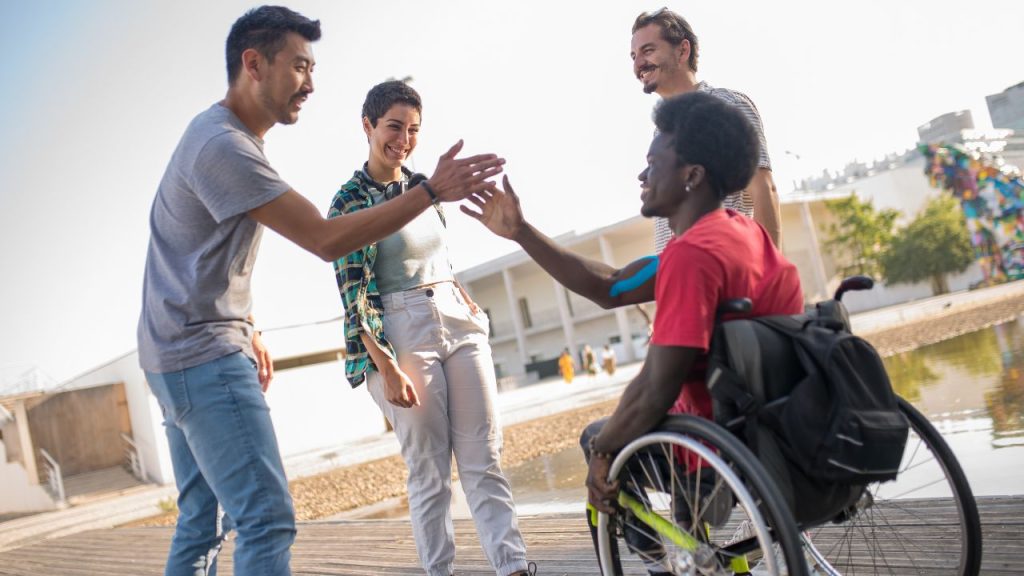Building a Person-Centerer Approach in NDIS Services
Understanding Individual Goals and Aspirations: At the heart of a person-centred approach lies the
recognition and understanding of the unique goals, aspirations, and preferences of each participant.
Engaging in open conversations becomes the catalyst for identifying what matters most to them,
ultimately aiding in the formation of a carefully crafted and tailored support plan.
Collaborative Planning: Moving beyond individual preferences, collaborative planning emerges as a
crucial element. Participants, their families, and support networks are integral components of the
planning process. The embrace of collaboration ensures that the support plan not only aligns with the
individual’s needs but also seamlessly integrates into the fabric of their lifestyle.
Flexibility and Adaptability: Recognizing the ever-evolving nature of needs and circumstances,
flexibility becomes the cornerstone of a person-centred approach. Preparedness to adapt support
plans in response to changing requirements empowers participants, acknowledging and respecting
their dynamic situations.
Effective Communication: Establishing clear and open lines of communication serves as the bedrock
of effective person-centred care. Regular check-ins with participants, active listening to their
feedback, and transparent sharing of information collectively build trust, fostering a robust partnership
between support providers and recipients.
Empowering Independence, Culturally Competent Care, Continuous Training and Development,
Regular Reviews and Assessments, Inclusive and Accessible Services, Client Feedback Mechanism:
These components collectively contribute to the overarching goal of empowering individuals to lead
fulfilling and self-determined lives. Encouraging participants in decision-making, recognizing diverse
cultural backgrounds, providing continuous training, conducting regular reviews, fostering inclusivity,
and incorporating a feedback mechanism all work in concert to tailor NDIS services, ensuring they are
responsive, culturally sensitive, and person-centerer. In conclusion, embracing collaboration,
flexibility, and continuous improvement allows NDIS providers to create a supportive environment that
acknowledges and caters to the unique needs of each participant, empowering them to navigate and
shape their individual journeys.
The Role of Community Engagement in NDIS Support
Community engagement is crucial in delivering holistic NDIS support, recognizing individuals with
disabilities as integral community members deserving equal opportunities for interaction, inclusion,
and contribution. NDIS providers actively foster connections, linking participants with local resources
and events for a broader support network. Additionally, they promote social inclusion through
organized activities, combating isolation and fostering a sense of belonging.
Furthermore, community engagement involves education and awareness campaigns, breaking down
barriers and reducing stigma. Emphasising participatory decision-making, NDIS providers collaborate
with participants to consider their preferences, aspirations, and needs, empowering individuals to
shape the support they receive. This approach extends beyond service provision, contributing to the
societal goal of creating inclusive and compassionate communities, ultimately enhancing the overall
quality of life for individuals with disabilities.




